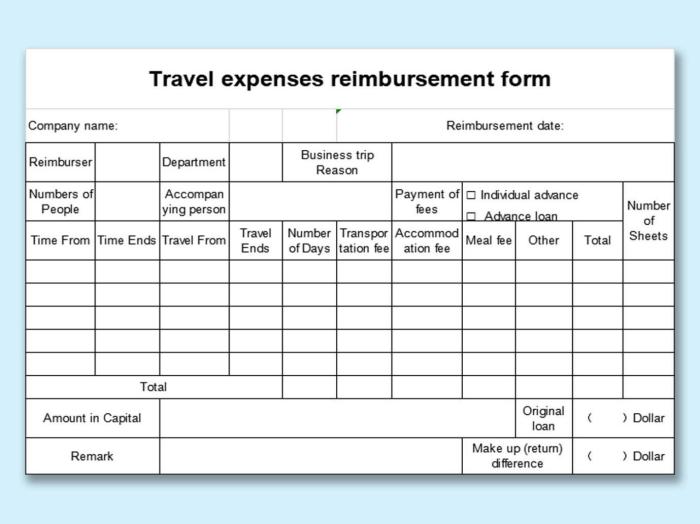
Embark on a journey filled with budget-friendly travel insights as we delve into the realm of Budget Travel Itinerary Ideas. From money-saving tips to affordable accommodation options, this topic promises a treasure trove of valuable information for the avid traveler.
Explore the world of budget travel through a lens of practicality and adventure, uncovering ways to make the most of your travel experiences without breaking the bank.
Budget Travel Itinerary Ideas
Traveling on a budget doesn’t mean you have to miss out on amazing experiences. By carefully planning your itinerary, you can explore new destinations without breaking the bank. Here are some tips to help you create a budget-friendly travel itinerary:
Finding Affordable Accommodation
When looking for budget-friendly accommodation, consider options like hostels, guesthouses, or Airbnb rentals. Booking in advance or opting for shared rooms can also help you save money on lodging costs.
Transportation Strategies
Save on transportation by using public transit, walking, or biking whenever possible. Look for budget airlines or consider taking overnight buses or trains to save on accommodation costs as well.
Saving Money on Food
Explore local markets and street food vendors for affordable meal options. Consider cooking your own meals if your accommodation has kitchen facilities. Avoid dining in touristy areas to save on food expenses.
Cultural Tourism
Cultural tourism plays a vital role in providing travelers with the opportunity to immerse themselves in different traditions, lifestyles, and historical backgrounds of various communities around the world. It allows individuals to gain a deeper understanding and appreciation of diverse cultures, fostering mutual respect and cultural exchange.
Popular Cultural Tourist Destinations
- Paris, France: Known for its art, architecture, and cuisine, Paris attracts millions of cultural tourists each year.
- Jaipur, India: Rich in history and cultural heritage, Jaipur offers visitors a glimpse into traditional Rajasthani culture.
- Machu Picchu, Peru: This ancient Incan citadel is a UNESCO World Heritage Site and a popular destination for travelers interested in South American history.
- Kyoto, Japan: With its temples, shrines, and traditional tea houses, Kyoto provides a window into Japanese culture and customs.
Engaging with Local Communities
One of the key benefits of cultural tourism is the opportunity to engage with local communities and traditions. By interacting with locals, participating in cultural activities, and attending festivals, travelers can gain authentic insights into the way of life in a particular region. This not only enriches the travel experience but also supports the preservation of cultural heritage and promotes sustainable tourism practices.
Eco-Tourism
Eco-tourism focuses on responsible travel practices that promote conservation, support local communities, and minimize negative impacts on the environment. By choosing eco-friendly travel options, tourists can help protect natural resources and preserve cultural heritage for future generations.
Importance of Eco-Tourism
- Preserves natural habitats and wildlife by promoting sustainable practices.
- Supports local economies and communities through responsible tourism initiatives.
- Raises awareness about environmental issues and encourages sustainable behavior among travelers.
Eco-Friendly Travel Tips
- Avoid single-use plastics and bring reusable water bottles and shopping bags.
- Choose accommodations that prioritize sustainability, such as eco-lodges or hotels with green certifications.
- Use public transportation, walk, or bike to reduce carbon emissions during your travels.
- Respect wildlife and natural habitats by observing from a distance and following designated trails.
Impact on Local Conservation Efforts
- Eco-tourism can provide financial incentives for communities to protect their natural resources and wildlife.
- By supporting local conservation projects, tourists contribute to the preservation of biodiversity and ecosystems.
- Engaging with communities through eco-friendly tourism activities can foster a greater appreciation for conservation efforts and encourage sustainable practices.
Culinary Travel
Culinary travel is a delightful way to explore different cultures and traditions through their unique flavors and cuisines. It allows travelers to immerse themselves in the local food scene, taste authentic dishes, and learn about the history and stories behind each recipe.
Tips for Incorporating Culinary Experiences
- Research local dishes and specialties before your trip to get an idea of what to try.
- Visit local markets, food stalls, and restaurants to sample a variety of dishes.
- Take a cooking class to learn how to prepare traditional meals and bring the recipes back home.
- Engage with locals to discover hidden food gems and get insider recommendations.
- Be open-minded and willing to try new flavors and ingredients to fully experience the culinary culture.
Cultural Significance of Food
Food plays a vital role in every culture, reflecting traditions, history, and values. It serves as a way to bring people together, celebrate special occasions, and express identity. When traveling, trying local dishes can deepen your understanding of a destination and create memorable experiences that connect you to the heart of a place.
Historical Travel
Historical travel provides a unique opportunity to delve into the past, gaining insights into how historical events have shaped the present world. By exploring historical sites and landmarks, travelers can better understand the cultures, traditions, and innovations that have influenced societies over time.
Popular Historical Tourist Attractions and Heritage Sites
Historical tourism offers a plethora of fascinating destinations for travelers to explore, each with its own rich history and significance. Some popular historical tourist attractions and heritage sites include:
- The Great Wall of China: A marvel of ancient engineering, this iconic structure spans thousands of miles and offers a glimpse into China’s imperial past.
- The Colosseum in Rome: A symbol of the power and grandeur of the Roman Empire, the Colosseum is a must-visit for history enthusiasts.
- Machu Picchu in Peru: This ancient Incan citadel nestled in the Andes Mountains provides a window into the sophisticated architectural and cultural achievements of the Inca civilization.
- The Pyramids of Giza in Egypt: These ancient wonders stand as a testament to the ingenuity and advanced knowledge of the ancient Egyptians.
Importance of Preserving Historical Landmarks
Preserving historical landmarks is crucial for maintaining a connection to our past and ensuring that future generations can learn from and appreciate the achievements of those who came before us. Historical sites serve as tangible links to history, allowing us to walk in the footsteps of our ancestors and gain a deeper appreciation for the world we inhabit today. By safeguarding these landmarks, we can ensure that the stories of the past continue to be told for years to come.
Luxury Travel
Luxury travel is a premium travel experience that offers exclusive and high-end services to travelers seeking the ultimate in comfort, convenience, and luxury. It goes beyond just accommodation and transportation, providing a range of personalized experiences to cater to the individual needs and preferences of discerning travelers.
Amenities and Services
Luxury travel is characterized by a wide range of amenities and services that set it apart from other travel styles. Some of the key features associated with luxury travel include:
- Exclusive and luxurious accommodations in high-end hotels, resorts, or private villas
- Personalized service and attention to detail, with dedicated staff to cater to every need
- Fine dining experiences at Michelin-starred restaurants or private chef services
- Private transportation options such as luxury cars, yachts, or private jets
- Access to exclusive experiences such as private tours, VIP access to attractions, and personalized itineraries
- Luxury spa treatments, wellness programs, and other indulgent experiences
Pros and Cons
When considering luxury travel, there are both pros and cons to take into account compared to other travel styles. Some of the advantages of luxury travel include:
- Unparalleled comfort and luxury, with high-quality amenities and services
- Personalized experiences tailored to individual preferences
- Exclusive access to unique and high-end destinations, accommodations, and activities
- Opportunities to relax, unwind, and indulge in luxury experiences
On the other hand, some potential drawbacks of luxury travel may include:
- High costs associated with luxury accommodations, services, and experiences
- Limited cultural immersion and authentic local experiences
- Potential disconnect from the local community and environment
- Less adventurous or off-the-beaten-path travel experiences
Backpacking

Backpacking is a popular travel style among adventurers and budget-conscious travelers. It involves traveling with a backpack, usually staying in hostels or budget accommodations, and immersing oneself in the local culture and environment.
Essential Tips for Backpacking
- Pack light: Only bring the essentials to avoid carrying a heavy load throughout your journey.
- Budget effectively: Plan your expenses wisely, opt for affordable meals and accommodations, and look for free or low-cost activities.
- Stay flexible: Embrace spontaneity and be open to changing your plans based on new opportunities or recommendations from locals.
Sense of Freedom and Exploration
Backpacking offers a sense of freedom and exploration that is unmatched by other forms of travel. With the ability to move around easily and interact with locals on a deeper level, backpackers often find themselves uncovering hidden gems and creating unforgettable memories along the way.
Solo Travel
Solo travel is a unique and rewarding experience that allows individuals to explore the world on their terms, free from the constraints of group dynamics. While it can be empowering and liberating, solo travel also comes with its own set of challenges that require careful planning and consideration.
Benefits of Solo Travel
- Freedom to create your own itinerary and travel at your own pace
- Opportunity for self-discovery and personal growth
- Increased independence and confidence
- Flexibility to make spontaneous decisions
Challenges of Solo Travel
- Loneliness and homesickness
- Safety concerns, especially for solo female travelers
- Handling all aspects of travel logistics on your own
- Difficulty in sharing experiences and creating memories with others
Safety Tips for Solo Travelers
- Research your destination thoroughly before you go
- Share your itinerary with a trusted friend or family member
- Avoid displaying valuables and be mindful of your surroundings
- Trust your instincts and prioritize your safety above all else
Personal Growth and Empowerment
Traveling solo can be a transformative experience that leads to profound personal growth and empowerment. It allows individuals to step out of their comfort zones, face challenges head-on, and build resilience in the face of adversity. Solo travel can instill a sense of self-reliance and confidence that carries over into all aspects of life, leading to a greater sense of fulfillment and achievement.
Group Travel

When it comes to traveling, exploring new destinations with a group of friends or like-minded individuals can enhance the overall experience. Group travel offers a range of benefits such as shared experiences, cost-sharing, and the opportunity to create lasting memories together. Planning a successful group travel itinerary requires careful consideration and coordination to ensure that everyone’s preferences and interests are taken into account.
Advantages of Group Travel
- Shared Experiences: Group travel allows for shared experiences and bonding with fellow travelers, creating stronger connections and memories.
- Cost-Sharing: By traveling in a group, expenses such as accommodation, transportation, and group activities can be split among the members, making it more budget-friendly.
- Diversity of Perspectives: Traveling with a group introduces different perspectives and ideas, enriching the overall travel experience.
- Safety in Numbers: Group travel provides a sense of security and support, especially in unfamiliar or remote locations.
Tips for Planning Successful Group Travel
- Communicate openly: Establish clear communication channels and encourage open dialogue to ensure that everyone’s preferences and concerns are addressed.
- Consider group dynamics: Take into account the group dynamics and interests when planning activities and itineraries to ensure that everyone is engaged and satisfied.
- Delegate responsibilities: Assign tasks and responsibilities to different group members to distribute the workload and avoid burnout.
- Be flexible: Remain flexible and open to changes in the itinerary to accommodate unexpected events or individual preferences.
Importance of Communication and Teamwork
- Effective communication is key to a successful group travel experience, ensuring that everyone is on the same page and informed about the plans.
- Teamwork and collaboration are essential in overcoming challenges and making decisions that benefit the entire group.
- Respect for each other’s opinions and preferences fosters a harmonious group dynamic and enhances the overall travel experience.
Final Summary
In conclusion, Budget Travel Itinerary Ideas offer a roadmap to memorable adventures on a budget, ensuring that your travel experiences are not only enriching but also cost-effective. Embrace the thrill of exploration without compromising on your financial goals with these insightful tips and strategies.
FAQ
How can I create a budget-friendly travel itinerary?
To create a budget-friendly travel itinerary, consider prioritizing free or low-cost activities, utilizing public transportation, and opting for budget accommodations.
What are some eco-friendly travel tips for reducing environmental impact?
Some eco-friendly travel tips include carrying a reusable water bottle, reducing plastic waste, supporting local conservation efforts, and choosing eco-conscious tour operators.
Is luxury travel worth the splurge compared to other travel styles?
Whether luxury travel is worth the splurge depends on individual preferences. Luxury travel offers exclusive experiences and amenities but comes with a higher price tag compared to budget or backpacking travel.





